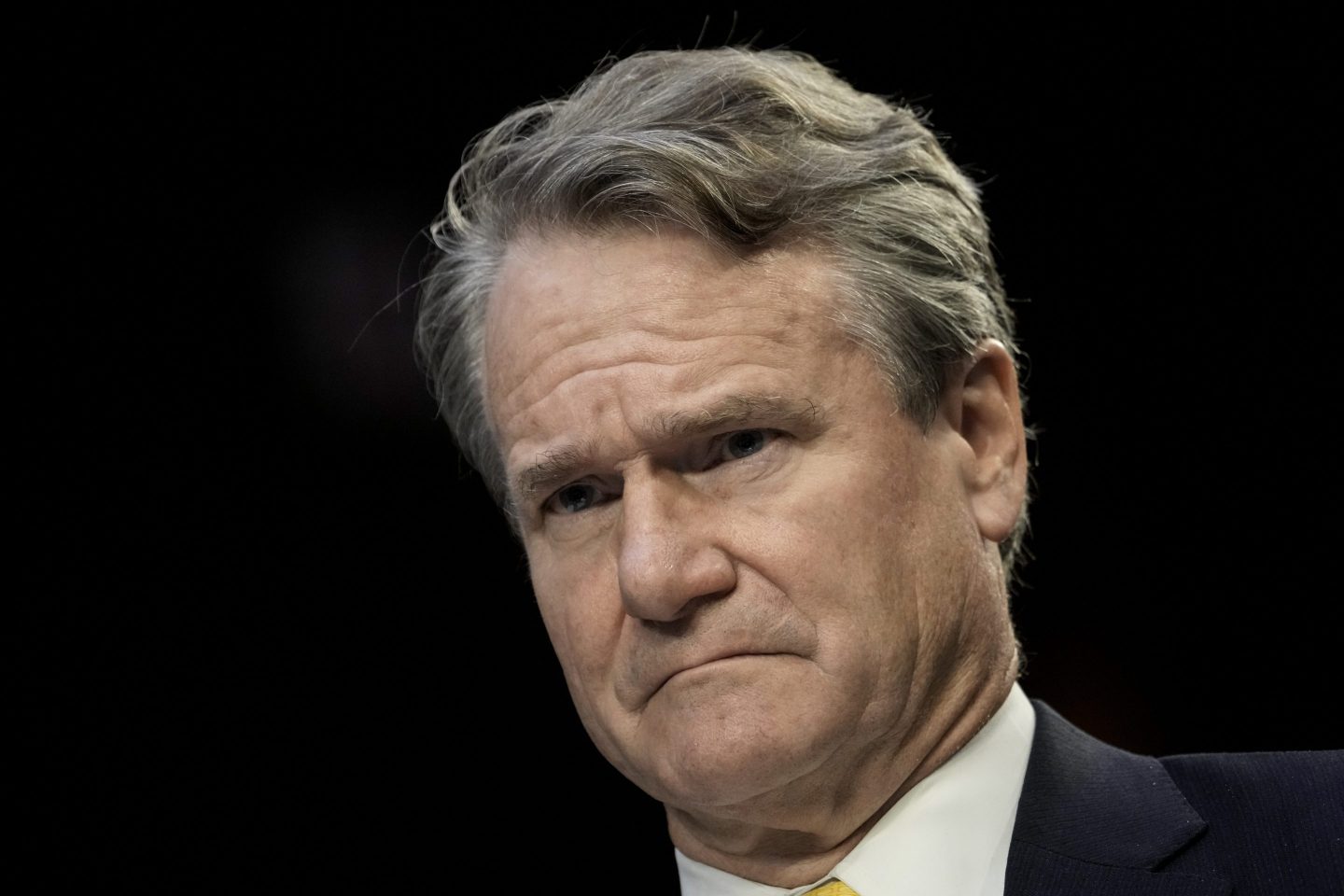
十多年前,,曾有多位銀行家致信美國(guó)國(guó)會(huì),警告國(guó)會(huì)議員美國(guó)國(guó)家債務(wù)違約的嚴(yán)重后果,,美國(guó)銀行(Bank of America)CEO布萊恩·莫伊尼漢就是其中之一,。十二年后,莫伊尼漢表示,,他和美國(guó)乃至全世界的公司領(lǐng)導(dǎo)者都必須做好準(zhǔn)備,,迎接終究會(huì)發(fā)生的美國(guó)債務(wù)違約,。這種情況極有可能發(fā)生。
莫伊尼漢在CNN《今晨》(This Morning)節(jié)目中表示,,雖然他希望一直以來(lái)所擔(dān)心的問(wèn)題不會(huì)真得發(fā)生,,但希望“不是一種策略”。
在此之前,,美國(guó)政府債務(wù)在1月19日達(dá)到31.4萬(wàn)億美元的上限,,國(guó)會(huì)為此連續(xù)數(shù)周爭(zhēng)吵不休。為了減少貸款違約的風(fēng)險(xiǎn),,政客們通常會(huì)尋求提高債務(wù)上限,。然而,隨著共和黨人最近掌管眾議院,,并要求削減開(kāi)支,,提高債務(wù)上限的過(guò)程似乎將被拖得更長(zhǎng),并且可能導(dǎo)致故意違約,。
美國(guó)財(cái)政部部長(zhǎng)珍妮特·耶倫曾警告美國(guó)“自己造成的違約災(zāi)難”會(huì)影響全球經(jīng)濟(jì),,以及將提高債務(wù)上限與削減支出掛鉤的危害。
也有經(jīng)濟(jì)學(xué)家認(rèn)為,,債務(wù)上限是“可笑的”,,對(duì)于真正減少支出的作用無(wú)異于杯水車(chē)薪。億萬(wàn)富翁投資者,、大型投資管理公司橋水聯(lián)合基金(Bridgewater Associates)的創(chuàng)始人雷·達(dá)里奧在LinkedIn上撰文稱(chēng),,債務(wù)上限“就像是一群酒鬼在起草強(qiáng)制限制飲酒的法律,只要達(dá)到規(guī)定的限制,,他們就會(huì)進(jìn)行荒唐的談判,,臨時(shí)取消限制,讓他們可以再酗酒狂歡,,直到達(dá)到新的限制,,然后他們又會(huì)故技重施,繼續(xù)酗酒,?!?/p>
在被問(wèn)到債務(wù)上限是否“有必要”時(shí),美國(guó)銀行的莫伊尼漢表示,,在憲法的范圍內(nèi),,債務(wù)上限會(huì)繼續(xù)發(fā)揮作用。他說(shuō)道:“這是一個(gè)政治進(jìn)程,,作為一個(gè)國(guó)家,,我們必須就如何做到量入為出展開(kāi)討論,而且這場(chǎng)討論會(huì)繼續(xù)下去。國(guó)會(huì)掌控了財(cái)政大權(quán),。我對(duì)于修改美國(guó)憲法持謹(jǐn)慎的態(tài)度,。美國(guó)憲法已經(jīng)存在了約250年時(shí)間,我們認(rèn)為應(yīng)該順其自然,,并保證它正常運(yùn)行,。”
這位銀行老板并沒(méi)有批評(píng)導(dǎo)致達(dá)到債務(wù)上限的決策,,他表示:“過(guò)去兩年,為了克服疫情對(duì)經(jīng)濟(jì)的拖累,,我們不得不背負(fù)大量債務(wù),。在某種情況下,我們必須弄清楚這種做法未來(lái)如何發(fā)揮作用,,但目前,,我們必須解決調(diào)整技術(shù)結(jié)構(gòu)的問(wèn)題?!?/p>
更樂(lè)觀的前景
雖然國(guó)會(huì)仍在就債務(wù)上限問(wèn)題爭(zhēng)執(zhí)不休,,但從多個(gè)重要經(jīng)濟(jì)指標(biāo)來(lái)看,目前的經(jīng)濟(jì)前景似乎好于預(yù)期,。雖然投資銀行,、經(jīng)濟(jì)學(xué)家和億萬(wàn)富翁投資者都預(yù)測(cè)經(jīng)濟(jì)前景暗淡,但美國(guó)勞工統(tǒng)計(jì)局(Bureau of Labor Statistics)本月公布的勞動(dòng)力市場(chǎng)數(shù)據(jù)卻顯示,,美國(guó)失業(yè)率降至3.4%,,為53年最低水平。耶倫表示,,這個(gè)確切的信號(hào)表明美國(guó)經(jīng)濟(jì)“強(qiáng)勁且有彈性”,。
莫伊尼漢也對(duì)這則消息感到振奮。他說(shuō)道,,就業(yè)是“美聯(lián)儲(chǔ)面臨的挑戰(zhàn)”之一,,但盡管美聯(lián)儲(chǔ)加息,失業(yè)率卻依舊較低,,這表明美聯(lián)儲(chǔ)的政策已經(jīng)發(fā)揮了預(yù)期效果,,并沒(méi)有對(duì)經(jīng)濟(jì)造成傷害。
雖然他依舊預(yù)測(cè)美國(guó)將陷入“適度衰退”,,但他認(rèn)為發(fā)生經(jīng)濟(jì)衰退的可能性變得越來(lái)越低,。他還對(duì)中美之間的貿(mào)易緊張表示樂(lè)觀。他表示,,對(duì)中美發(fā)生沖突的負(fù)面影響的擔(dān)憂,,將是促使雙方“回到會(huì)議室”,通過(guò)談判緩解緊張局面的關(guān)鍵,。(財(cái)富中文網(wǎng))
譯者:劉進(jìn)龍
審校:汪皓
十多年前,,曾有多位銀行家致信美國(guó)國(guó)會(huì),,警告國(guó)會(huì)議員美國(guó)國(guó)家債務(wù)違約的嚴(yán)重后果,美國(guó)銀行(Bank of America)CEO布萊恩·莫伊尼漢就是其中之一,。十二年后,,莫伊尼漢表示,他和美國(guó)乃至全世界的公司領(lǐng)導(dǎo)者都必須做好準(zhǔn)備,,迎接終究會(huì)發(fā)生的美國(guó)債務(wù)違約,。這種情況極有可能發(fā)生。
莫伊尼漢在CNN《今晨》(This Morning)節(jié)目中表示,,雖然他希望一直以來(lái)所擔(dān)心的問(wèn)題不會(huì)真得發(fā)生,,但希望“不是一種策略”。
在此之前,,美國(guó)政府債務(wù)在1月19日達(dá)到31.4萬(wàn)億美元的上限,,國(guó)會(huì)為此連續(xù)數(shù)周爭(zhēng)吵不休。為了減少貸款違約的風(fēng)險(xiǎn),,政客們通常會(huì)尋求提高債務(wù)上限,。然而,隨著共和黨人最近掌管眾議院,,并要求削減開(kāi)支,,提高債務(wù)上限的過(guò)程似乎將被拖得更長(zhǎng),并且可能導(dǎo)致故意違約,。
美國(guó)財(cái)政部部長(zhǎng)珍妮特·耶倫曾警告美國(guó)“自己造成的違約災(zāi)難”會(huì)影響全球經(jīng)濟(jì),,以及將提高債務(wù)上限與削減支出掛鉤的危害。
也有經(jīng)濟(jì)學(xué)家認(rèn)為,,債務(wù)上限是“可笑的”,,對(duì)于真正減少支出的作用無(wú)異于杯水車(chē)薪。億萬(wàn)富翁投資者,、大型投資管理公司橋水聯(lián)合基金(Bridgewater Associates)的創(chuàng)始人雷·達(dá)里奧在LinkedIn上撰文稱(chēng),,債務(wù)上限“就像是一群酒鬼在起草強(qiáng)制限制飲酒的法律,只要達(dá)到規(guī)定的限制,,他們就會(huì)進(jìn)行荒唐的談判,,臨時(shí)取消限制,讓他們可以再酗酒狂歡,,直到達(dá)到新的限制,,然后他們又會(huì)故技重施,繼續(xù)酗酒,?!?/p>
在被問(wèn)到債務(wù)上限是否“有必要”時(shí),美國(guó)銀行的莫伊尼漢表示,在憲法的范圍內(nèi),,債務(wù)上限會(huì)繼續(xù)發(fā)揮作用,。他說(shuō)道:“這是一個(gè)政治進(jìn)程,作為一個(gè)國(guó)家,,我們必須就如何做到量入為出展開(kāi)討論,,而且這場(chǎng)討論會(huì)繼續(xù)下去。國(guó)會(huì)掌控了財(cái)政大權(quán),。我對(duì)于修改美國(guó)憲法持謹(jǐn)慎的態(tài)度,。美國(guó)憲法已經(jīng)存在了約250年時(shí)間,我們認(rèn)為應(yīng)該順其自然,,并保證它正常運(yùn)行,。”
這位銀行老板并沒(méi)有批評(píng)導(dǎo)致達(dá)到債務(wù)上限的決策,,他表示:“過(guò)去兩年,為了克服疫情對(duì)經(jīng)濟(jì)的拖累,,我們不得不背負(fù)大量債務(wù),。在某種情況下,我們必須弄清楚這種做法未來(lái)如何發(fā)揮作用,,但目前,,我們必須解決調(diào)整技術(shù)結(jié)構(gòu)的問(wèn)題?!?/p>
更樂(lè)觀的前景
雖然國(guó)會(huì)仍在就債務(wù)上限問(wèn)題爭(zhēng)執(zhí)不休,,但從多個(gè)重要經(jīng)濟(jì)指標(biāo)來(lái)看,目前的經(jīng)濟(jì)前景似乎好于預(yù)期,。雖然投資銀行,、經(jīng)濟(jì)學(xué)家和億萬(wàn)富翁投資者都預(yù)測(cè)經(jīng)濟(jì)前景暗淡,但美國(guó)勞工統(tǒng)計(jì)局(Bureau of Labor Statistics)本月公布的勞動(dòng)力市場(chǎng)數(shù)據(jù)卻顯示,,美國(guó)失業(yè)率降至3.4%,,為53年最低水平。耶倫表示,,這個(gè)確切的信號(hào)表明美國(guó)經(jīng)濟(jì)“強(qiáng)勁且有彈性”,。
莫伊尼漢也對(duì)這則消息感到振奮。他說(shuō)道,,就業(yè)是“美聯(lián)儲(chǔ)面臨的挑戰(zhàn)”之一,,但盡管美聯(lián)儲(chǔ)加息,失業(yè)率卻依舊較低,,這表明美聯(lián)儲(chǔ)的政策已經(jīng)發(fā)揮了預(yù)期效果,,并沒(méi)有對(duì)經(jīng)濟(jì)造成傷害。
雖然他依舊預(yù)測(cè)美國(guó)將陷入“適度衰退”,但他認(rèn)為發(fā)生經(jīng)濟(jì)衰退的可能性變得越來(lái)越低,。他還對(duì)中美之間的貿(mào)易緊張表示樂(lè)觀,。他表示,對(duì)中美發(fā)生沖突的負(fù)面影響的擔(dān)憂,,將是促使雙方“回到會(huì)議室”,,通過(guò)談判緩解緊張局面的關(guān)鍵。(財(cái)富中文網(wǎng))
譯者:劉進(jìn)龍
審校:汪皓
More than a decade ago, Bank of America CEO Brian Moynihan was one of a handful of bankers to write to Congress warning lawmakers how terrible it would be to default on the country’s debt. Twelve years on and Moynihan has said that both he and corporate leaders across America and around the world must be prepared for the real possibility that it could finally happen.
Speaking on CNN This Morning, Moynihan said that although he is hoping his long-held fears won’t come true, hope simply “isn’t a strategy.”
Moynihan’s words come following weeks of congressional bickering after the U.S. government hit its debt ceiling of $31.4 trillion on Jan. 19. Typically politicians will seek to raise this ceiling to alleviate the risk of defaulting on loans. However, with the Republicans recently taking control of the House of Representatives—and demanding spending cuts—it seems that the process will take longer than usual and could lead to an intentional default.
Treasury Secretary Janet Yellen has warned of the “self-inflicted calamity” a default would inflict on the global economy, and of the dangers of linking an increase in the debt ceiling to cuts.
Other economists believe the debt ceiling is a “farce” that has little teeth to actually curb spending. Ray Dalio, billionaire investor and founder of the investment management giant Bridgewater Associates, wrote on LinkedIn that the cap is “l(fā)ike a bunch of alcoholics who write laws to enforce drinking limits, and when a limit is reached, they do a farcical negotiation that temporarily eliminates the limit which allows them to have the next drinking binge until they reach the next limit at which time they go through the next farcical negotiation and continue to binge.”
When asked whether or not the limit is “worth it,” Bank of America’s Moynihan voiced his belief in continuing to work within the parameters of the Constitution. “It’s a political process and there’s got to be an argument about how we make sure we live within our means as a country, and that argument’s going to go on,” he said. “Congress has the purse strings. I would be careful about trying to restructure the U.S. Constitution. It’s been around for 250 years almost, I think we should leave it alone and make sure it operates correctly.”
The banking boss wasn’t critical of the decisions that led to the ceiling being reached, adding, “We had to put on a lot of debt over the past couple of years to overcome the pandemic drag on the economy. At some point we’ve got to figure out how that works in the future, but right now we’ve got to get past the issues of just getting through the technical structure.”
Rosier outlook
As the debt ceiling bickering continues in Congress, the current economic outlook appears rosier than expected by several key economic measures. Despite ongoing doom and gloom predictions from investment banks, economists, and billionaire investors, labor market data from the Bureau of Labor Statistics released this month showed the unemployment rate fell to a 53-year low of 3.4%. A sure sign, Yellen added, that the economy is “strong and resilient.”
Moynihan was also buoyed by the news. Employment is one of the “challenges for the Fed,” he said, but the fact that unemployment had remained low despite the central bank raising rates was a sign the policy has had its desired effects without being detrimental to the economy.
And although the CEO is still predicting a “mild recession,” he added that the prospect of one is growing more distant. He was also sanguine about trade tensions with China, saying that the fear of a negative impact from a falling out between China and the U.S. would be key to getting people “back in a room” to ease tensions through negotiations.






